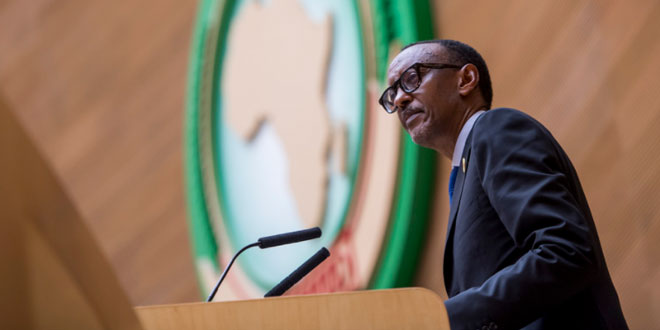
Why she chose to base book on interviews with Kagame’s enemies but not give his side
THE LAST WORD | ANDREW M. MWENDA | The fundamental error of Michela Wrong’s book was to listen to one side in the Rwandan story. Consequently, she ended up sanctifying Patrick Karegyeya and other opposition individuals and groups and demonising President Paul Kagame and his government. For instance,
when RPF took over power in 1994, the state had totally collapsed, the economy had been completely destroyed and the society had been systematically torn asunder. Yet anyone who visits Rwanda today would be profoundly impressed by the speed, scale and scope of its state reconfiguration, economic reconstruction and social reconstitution.
How did this happen? Is it not obvious that it is the decisions and actions Kagame and those around him took that have made this possible?
No one in 1994 thought it was possible to reconfigure the state in Rwanda, reconstruct its economy and to reconstitute that society so that both Hutu and Tutsi can live peacefully. If Wrong was not a partisan doing a hatchet job on Kagame, she would have wondered: could the high-handed measures employed by the post genocide government been the ones responsible for this dramatic and indeed miraculous transformation?
One of her main accusations against RPF was that it too indulged in massacres – of ethnic Hutu. No one in RPF denies that there were revenge killings in Rwanda between 1994 and 1998. In the heat of the genocide, the RPF did execute many of its own soldiers who killed civilians. Yet it is possible many killings of civilians could have taken place between 1994 and 2,000 by errant individual soldiers (revenge killings) or even on the orders of RPF officers (isolated but systematic) which may have not been punished. But that is the complexity of the post genocide Rwandan story: vast numbers of Hutus who actively committed genocide were forgiven in the name of reconciliation and healing. Does it not follow that not every killing by the Tutsis could not go unpunished? Is Wrong saying that Hutu killers could be forgiven but not Tutsi ones? Is that fair?
In fighting Adolf Hitler, the Western allies made mistakes, like the bombing of Dresden. Six million innocent German civilians lost their lives. But would Wrong write a book on the post-World War Two that creates some moral equivalence between the crimes of Hitler and his NAZIs and the allies? This is the critical issue in her book as it tries to present “evidence” that RPF was not different from the genocidal regime it defeated. She presents actions of errant individuals as organised and officially sanctioned killings i.e. counter genocide. I and many Rwandan friends, Tutsi as well as Hutu, found it profoundly repulsive.
Let us return to Karegyeya, the hero of her book. I knew him very well. We were good friends. It is actually he that introduced me to Kagame in 2001. When he was fired, I remained his friend. I used to visit him and his wife at their home when many Rwandans were avoiding them. On many occasions I warned him of the dangers of a former chief of intelligence speaking loosely in bars, continuing to meet his assets, both domestic and international, without seeking permission from the system. But I realised that Karegyeya found it hard to adjust to private life, to be an ordinary citizen. This led him to develop a hostile attitude towards the government. His words and actions came to border on subversion.
Wrong inadvertently reveals the petty but equally dangerous aspects of Karegyeya. She tells of how he walked into the British High Commission offices in Kampala and casually told some low-level official that he was the main player in the shooting down of the plane of former President Juvenal Habyarimana and his Burundian counterpart. Even if this were true, what kind of former intelligence chief is this? States do many dirty things and their intelligence officials hold many secrets. Imagine a former director of the CIA or Mossad or MI6 walking into the embassy of Russia and revealing their operations! What do intelligence agencies do to such agents who turn rogue? Wrong knows.
For me the behavior of Karegyeya, Kayumba Nyamwasa, Theogene Rudasingwa, David Himbara and others only demonstrates the crisis of political elite in Africa. When they fall out of favour, they do not distinguish between state interests and their own grievances.
The post Wrong’s Rwanda hatchet job part 3 appeared first on The Independent Uganda:.
from The Independent Uganda: https://ift.tt/3tQEqRr
0 Comments